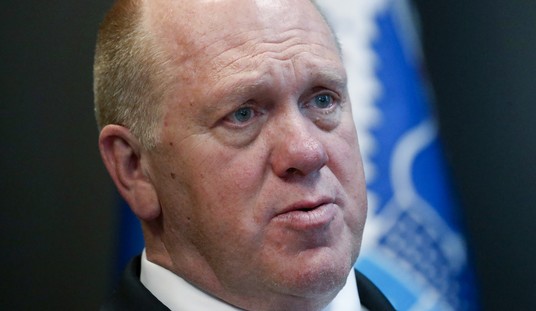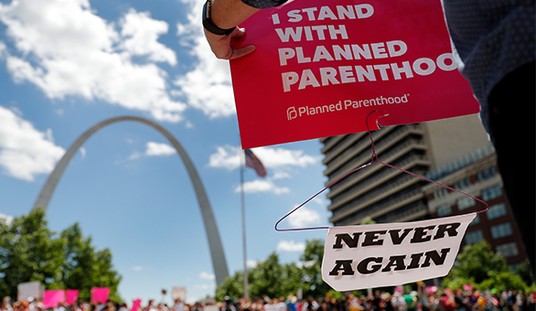Under questioning by the Republican minority counsel, Professor Jonathan Turley continued to destroy the Democrats’ impeachment claims, particularly on allegations of obstruction of justice and abuse of power, which are apparently two of the Democrats’ articles of impeachment about which we will hear more. Here is what Turley had to say; it’s a lesson in the law and in the history of impeachment:
The record does not establish obstruction in this case. What my esteemed colleagues said is certainly true: if you accept all of their presumptions, it would be obstruction. But impeachments have to be based on proof, not presumptions. That’s the problem when you move towards impeachment on this abbreviated schedule. It has not been explained to me why you want to set the record for the fastest impeachment. Fast is not good for impeachment. Narrow, fast impeachments have failed. Just ask (Andrew) Johnson.
The obstruction issue is an example of this problem. And here’s my concern. The theory being put forward is that President Trump obstructed Congress by not turning over material requested by the committee. And citations have been made to the third article of the Nixon impeachment. First of all, I have to confess (that) I have been critical of the third article of the Nixon impeachment my whole life. My hair catches on fire every time someone mentions the third article. Why? Because you would be replicating one of the worst articles written on impeachment. Here’s the reason why.
Peter Rodino’s position as Chairman of Judiciary was that Congress alone decides what information may be given to it. Alone. His position was that the courts have no role in this. And so, by that theory, any refusal by a president based on executive privilege or immunities would be a basis for impeachment. That is essentially the theory that is being replicated today.
President Trump has gone to the courts. He’s allowed to do that. We have three branches, not two. I happen to agree with some of your criticism (looking at the three Democrat hack witness) about President Trump, including that earlier quote where my colleagues talked about the President saying that “there’s this Article Two,” and then he gives this overriding interpretation. I share that criticism. You’re doing the same thing with Article One. You’re saying Article One (of the Constitution) gives us complete authority that, when we demand information from another branch it MUST be turned over, or we’ll impeach you in record time.
Now making that worse, you have such a short investigation. It’s a perfect storm. You set an incredibly short period, you demand a huge amount of information, and when the President goes to court, you then impeach him. Now does that track with what you’ve heard about impeachment? Does that track with the rule of law that we talked about?
So on obstruction, I would encourage you to think about this. In Nixon, it did go to the courts, and Nixon lost, and that was the reason that Nixon resigned. He resigned a few days after the Supreme Court ruled against him in that critical case. But in that case, the court recognized there are executive privilege arguments that can be made. It didn’t say, “you had no right coming to us; don’t darken our doorsteps again.” It said, “we heard your argument, we’ve heard Congress’s argument, and you know what, you lose; turn over the material to Congress.”
What that did is that it gave the Judiciary Committee – this body – legitimacy. It wasn’t the Rodino extreme position that only you decide what information can be produced. Now recently there have been some rulings against President Trump, including a ruling involving Don McGahn.
Mr. Chairman, I testified a few months ago in front of you, and if you recall we had an exchange, and I encouraged you to bring those actions, and I said I thought you would win. And you did. And I think it was an important win for this committee because I don’t agree with President Trump’s argument in that case. But that’s an example of what can happen if you actually subpoena witnesses and go to court. Then you have an obstruction case because the court issues and order. And unless you stay that order by a higher court, you have obstruction.
But I can’t emphasize this enough, and I’ll say it just one more time. If you impeach a president – if you make a high crime and misdemeanor out of going to the courts – it is an abuse of power. It’s YOUR abuse of power. You are doing precisely what you are criticizing the President of doing. We have a third branch that deals with conflicts between the other two branches. And what comes out of there and what you do with it is the very definition of legitimacy.
—–
Impeachments require a certain period of saturation and maturation. That is, the public has to catch up. I’m not prejudging what your record would show, but if you rush this impeachment, you’re going to leave half the country behind. And certainly, that’s not what the Framers wanted. You have to give the time to a build a record. This isn’t an impulse-buy item. You’re trying to remove a duly elected president of the United States, and that takes time, and that takes work. But at the end, if you look at Nixon, which is the gold standard in that respect, the public did catch up. They originally did not support impeachment, but they changed their mind. You (the Rodino Judiciary Committee) changed their mind. And so did, by the way, the courts, because you allowed these issues to be heard in the courts.
In responding to a question from minority counsel about where he had seen evidence of “high crimes warranting impeachment” in the evidence presented to date, Turley said the following.
I’ve gone through all of the crimes mentioned. They do not meet any reasonable interpretation of those crimes. I’m relying on express statements from the federal courts. I understand that the language in the statutes are often broad. That’s not the controlling language; it’s the language of the interpretation of the federal courts. And I think that all of those decisions stand mightily in the way of the (Democrat impeachment) theories. And if you can’t make out those crimes, then don’t call it that crime. If it doesn’t matter, then what’s the point? Call it treason. Call it “endangered species violations” if none of this matters.
—
This is one of the thinnest records ever to go forward on impeachment…. If you look at what went forward in the Nixon and Clinton impeachments, this is almost wafer thin by comparison. It has left doubts in the minds … of people like myself in what actually occurred. … I’ve read the evidence. … I don’t see proof of a quid pro quo, no matter what my presumptions, assumptions and biases might be.
Turley’s comments about “fast and narrow” get to the heart of the matter. The Democrats are ramming through a narrowly focused impeachment process that denies minority rights, stacks the deck with partisan witnesses, prevents the disclosure of witness testimony that damages their false allegations, builds a case solely on hearsay evidence, and tries to use the President’s right to contest the Democrats’ demands for witnesses and documents through the courts as “obstruction of justice” and grounds for impeachment!
There is no evidence of any crimes warranting impeachment, just as Professor Turley testified. Everything in the Schiff impeachment report is based on hearsay and personal opinion. And Turley is absolutely right on the Democrats’ abuse of power allegations. He turned the Democrats’ claims inside out by calmly stating that, by rushing to judgment on impeachment without evidence, it is the Democrats themselves who are abusing power!
But we already knew that by watching the Schiff star chamber, didn’t we? Good on ya for stating the facts, Professor (even if you’re not a Trump supporter). You may be the last honest Democrat in America.
The end.












Join the conversation as a VIP Member